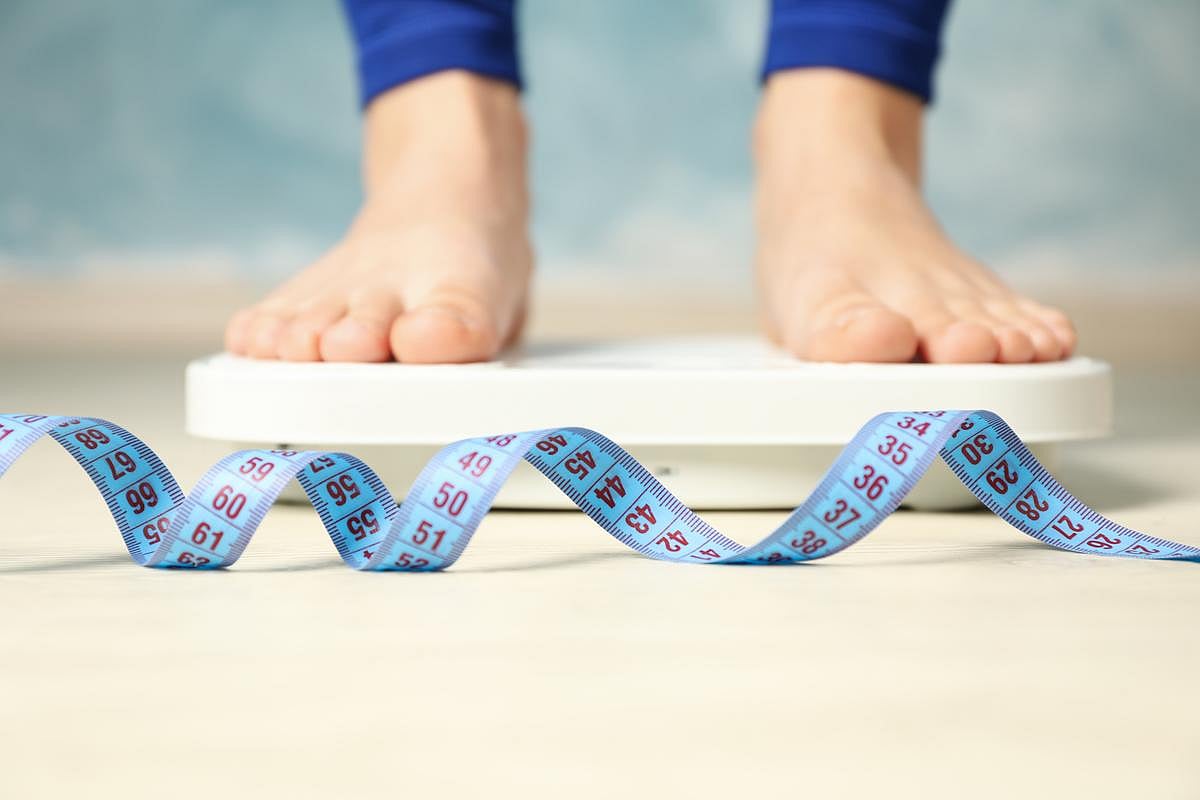Get Healthy!

- Carole Tanzer Miller
- Posted June 25, 2025
Monthly Obesity Shot Shows Big Weight Loss in Trial
Alternatives to weekly injections of weight-loss drugs may on the way.
A monthly dose of a new drug called MariTide helped participants in a phase 2 clinical trial shed about 20% of their body weight over a year, researchers reported Monday in The New England Journal of Medicine.
Made by Amgen, MariTide was among several next-generation treatments for diabetes and obesity discussed at a meeting of the American Diabetes Association in Chicago, which concluded Monday.
"The more options, the better," Dr. Michelle Ponder, an assistant professor of medicine at Duke University in Durham, N.C., told NBC News.
Unlike the GLP-1 drugs, Ozempic, Wegovy, Mounjaro and Zepbound, which are injected every week, MariTide includes a monoclonal antibody that lets the drug stay in the body longer. The upshot: People can take it once a month, not every week.
That, Ponder said, would be a boon for patients and prescribers alike.
"It’s always just easier for patients to only have to take something once per month," she told NBC. "A lot of patients we see in endocrinology are diabetes patients, and so they’d be taking multiple shots of insulin per day. And so, every last shot matters, even if it’s three less shots per month."
The phase 2 trial included nearly 600 adults, some with type 2 diabetes and obesity, others with obesity alone.
Some received monthly doses of MariTide for a year; others, a placebo. Doses for some in the obesity group were slowly increased over a period of weeks.
The results: Participants with obesity alone lost up to 20% of their body weight, on average, over a year on MariTide, compared to 2.6% for the placebo group.
Average weight loss for participants with diabetes was 17%, compared to 1.4% in the placebo group.
NBC News reported that this places MariTide on par with Wegovy and Zepbound.
Dr. Jay Bradner, executive vice president of research and development at Amgen, told NBC that participants’ weight loss hadn’t leveled off at the one-year mark. That suggests longer treatment offers the potential for further weight loss.
MariTide also lowered a key indicator of blood sugar — A1C — by as much as 2.2 percentage points inpeople with diabetes, the trial showed. A1C reductions with Ozempic and Mounjaro were around 1.5 to 2 percentage points in trials, NBC noted.
MariTide also showed heart-health benefits, improving blood pressure, cholesterol and inflammation, researchers found. Side effects were similar to those with other GLP-1 meds, mainly gastrointestinal issues.
Amgen is also testing every-other-month dosing. Bradner said weight loss has been comparable to monthly doses, but more side effects have been reported.
The next step for Amgen will be a phase 3 trial, which will run for 72 weeks.
Most of these new-generation drugs are probably years away from approval.
At the diabetes conference, Eli Lilly presented results of a phase 1 trial of its experimental drug, eloralintide. Unlike GLP-1 drugs, it targets a hormone that slows stomach emptying. Over 12 weeks, average weight loss was 11.3%, and Lilly said gastrointestinal side effects were less common than with other drugs it has studied.
Lilly also reported that another drug, retatrutide, helped people lose about 24% of body weight in a mid-stage trial. The drugmaker expects to complete a phase 3 trial later this year, according to NBC News.
And, in a phase 2 trial, it said that a combo of semaglutide and bimagrumab, a monoclonal antibody, helped preserve lean muscle mass while losing weight.
The company also reported at the conference and in The New England Journal of Medicine that an experimental weight loss pill, orforglipron, lowered A1c in people with type 2 diabetes.
Meanwhile, Novo Nordisk reported on its newest drug, CagriSema, a combination of semaglutide and cagrilintide.
In two phase 3 trials involving more than 4,500 adults, those without diabetes lost an average of 20.4% of their weight after 68 weeks. Weight loss among those with type 2 diabetes averaged 13.7%.
Dr. Shauna Levy, medical director of the Tulane Bariatric Center in New Orleans, hailed the growing number of potential options for patients.
"It’s long been thought that obesity is an easy disease to treat, but in reality, it’s actually very difficult," she told NBC News. "There’s not going to be one right answer for patients, so the more tools we have to treat the disease, the more likely you will be successful in hopefully eliminating or significantly decreasing this epidemic."
More information
The Cleveland Clinic has more about monoclonal antibodies.
SOURCE: NBC News, June 23, 2025






